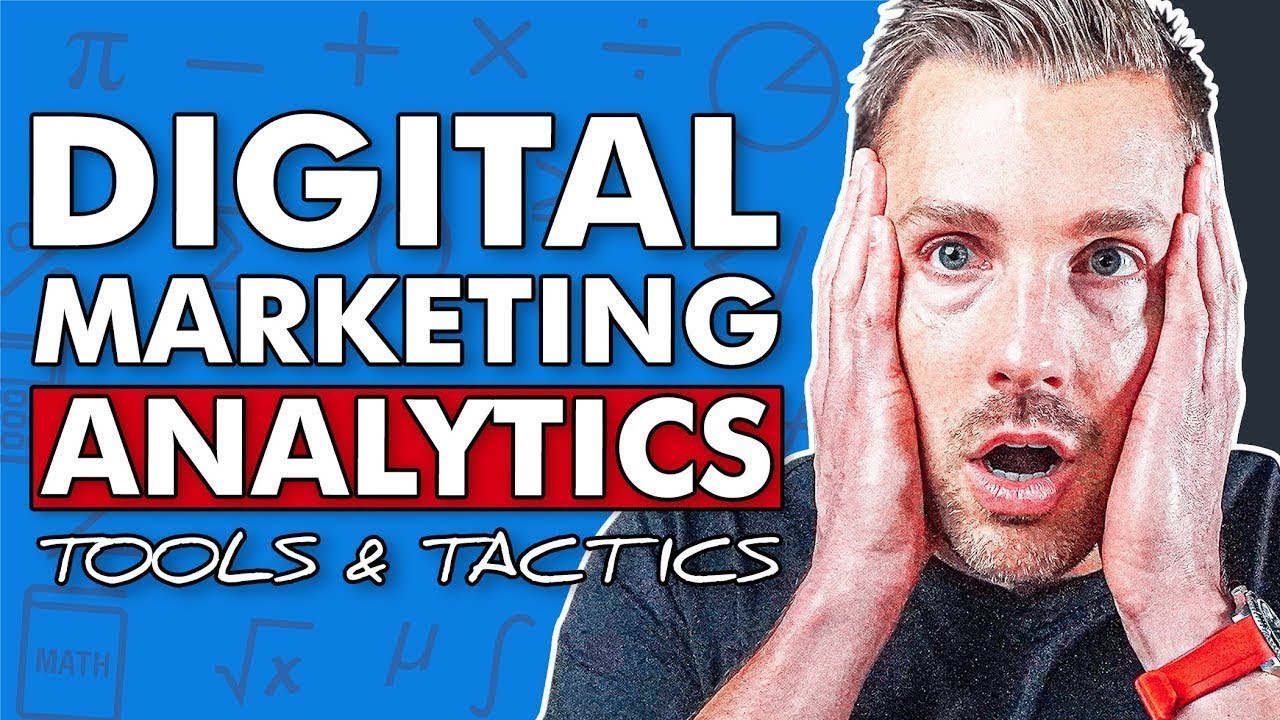- digital media analytics
- Customer Experience Monitoring Through Social Media Analytics
- Tracking Trends And Conversations About Products And Brands
- Evaluating Customer Sentiment And Social Media Response
- Revealing High-Value Features And Competitor Strategies
- Applying Insights For Tactical Adjustments
- Enhancing Strategic Decision-Making With Social Media Analytics
- Integration Of Social Media Analytics In Business Strategy Development
- Leveraging Analytics For Effective Decision-Making
In a digitalage where every click and tap generates an avalanche of data, companies are turning to the power of digitalmediaanalytics. This innovative field of study holds the key to unlocking a treasure trove of insights, enabling businesses to navigate the ever-changing landscape of customer behavior.
With social mediaanalytics at their disposal, companies can extract valuable information to monitor customer experiences, spot emerging trends, measure customer sentiment, unveil competitor strategies, and ultimately make strategic decisions that propel their success. Join us on a journey through the world of digital media analytics, where data-driven discoveries pave the path to unparalleled business growth.
| Item | Details |
|---|---|
| Topic | Digital Media Analytics: Unlocking Insights in the Digital Age |
| Category | Ads |
| Key takeaway | In a digital age where every click and tap generates an avalanche of data, companies are turning to the power of digital media analytics. |
| Last updated | December 28, 2025 |
digital media analytics
Digital media analytics refers to the practice of using data gathered from various digital platforms and channels to understand and analyze consumer behavior, preferences, and trends related to products and brands. It involves collecting and analyzing data from social media platforms, websites, email campaigns, and other forms of digital communication.
By leveraging digital media analytics, companies are able to monitor and address customer experiences and feedback in real-time, identify ongoing conversations and trends, measure customer sentiment towards products, and gauge the effectiveness of their social media and other communication efforts. These insights help companies make tactical adjustments and inform strategic decision-making, allowing them to uncover competitor strategies, understand customer preferences, and identify high-value features.
IBM integrates social media analytics into discussions about business strategy development, recognizing its importance in staying competitive in the digital age.Key Points:
- Digital media analytics uses data from various platforms to analyze consumer behavior and trends
- Data is collected and analyzed from social media platforms, websites, email campaigns, and other digital communication channels
- Companies can monitor and address customer experiences and feedback in real-time using digital media analytics
- Insights from analytics help companies make tactical adjustments and inform strategic decision-making
- Digital media analytics allows companies to uncover competitor strategies and understand customer preferences
- IBM recognizes the importance of social media analytics in staying competitive in the digital age.
Sources
https://www.ibm.com/topics/social-media-analytics
https://www.coursera.org/learn/digital-analytics
https://www.eventreg.purdue.edu/info/digital-media-analytics/
https://www.edureka.co/blog/digital-media-analytics-everything-you-need-to-know
Check this out:
💡 Pro Tips:
1. Utilize real-time monitoring tools: Invest in tools that provide real-time monitoring of social media channels, allowing you to quickly identify and address any customer issues or concerns. These tools can help you stay proactive in managing customer experiences and ensure prompt responses.
2. Segment and analyze customer data: Use digital media analytics to segment your customer data based on various factors such as demographics, location, and behavior. Analyzing this data can help you understand different customer segments and tailor your marketing strategies accordingly.
3. Stay updated with industry trends: Use digital media analytics to keep track of industry trends and conversations related to your products or services. This will enable you to stay ahead of the competition and make informed business decisions to meet changing customer demands.
4. Leverage sentiment analysis: Take advantage of sentiment analysis tools that analyze text and social media data to determine customer sentiment towards your products or brand. This can help you gauge the overall satisfaction of your customers and identify areas for improvement.
5. Measure the effectiveness of different marketing channels: Track the performance of your various marketing channels, including social media, email marketing, and paid advertisements. By analyzing the data, you can identify which channels are driving the most engagement, leads, and conversions, allowing you to allocate your marketing budget more effectively.
Customer Experience Monitoring Through Social Media Analytics
In today’s digital age, social media has become an integral part of people’s lives. Billions of individuals across the globe actively use various social media platforms to connect with friends, share experiences, and express opinions.
For companies, this presents a unique opportunity to gain valuable insights into customer experiences and feedback through the use of digital media analytics.
Social media analytics enables companies to monitor and address customer experiences in real-time. By analyzing social media data, companies can identify patterns and trends that provide essential information about customer satisfaction and dissatisfaction.
This data allows companies to make strategic decisions that improve products and services and enhance the overall customer experience.
Moreover, social media analytics helps companies spot and understand conversations related to their products and brands. Through sentiment analysis and topic tracking, companies can identify key areas of interest or concern for their customers.
This information can be used to address customer needs and preferences promptly, ultimately leading to improved customer loyalty and increased brand reputation.
Tracking Trends And Conversations About Products And Brands
In today’s fast-paced digital landscape, keeping up with consumer trends is crucial for businesses. Social media analytics offers companies the ability to track trends and conversations related to their products and brands.
By monitoring social media platforms, companies can identify emerging trends, industry buzz, and market opportunities.
By analyzing the conversations happening on social media, companies gain valuable insights into consumer behavior and preferences. This information enables businesses to align their products and services with market demands, making them more competitive in the digital age.
Furthermore, tracking conversations about their brands allows companies to identify potential crises or reputational risks and take appropriate actions to mitigate them.
Evaluating Customer Sentiment And Social Media Response
Understanding customer sentiment towards products and brands is vital for any business. Social media analytics offers a powerful tool for evaluating customer sentiment by analyzing social media conversations.
By systematically monitoring mentions, comments, and reviews, companies can gauge customer satisfaction and identify areas for improvement.
In addition to measuring sentiment, social media analytics enables companies to evaluate the effectiveness of their social media and other communication strategies. By tracking engagement metrics such as likes, shares, and comments, businesses can measure the impact of their communication efforts and make adjustments as needed.
This real-time feedback allows companies to refine their messaging and communication strategies to better resonate with their target audience.
Revealing High-Value Features And Competitor Strategies
Identifying high-value features and understanding competitor strategies is crucial for business success. Digital media analytics provides companies with the means to uncover these insights.
By analyzing social media data, companies can identify which features or aspects of their products are highly valued by customers. This information helps businesses focus their efforts on enhancing and promoting these features to drive customer satisfaction and loyalty.
Furthermore, social media analytics allows companies to gain valuable insights into competitor strategies and effectiveness. By monitoring social media conversations about competitors, businesses can uncover competitor tactics, campaigns, and customer responses.
This information can be used to benchmark against competitors, identify gaps in the market, and develop effective strategies to gain a competitive advantage.
Applying Insights For Tactical Adjustments
The insights gained from social media analytics are not only valuable for strategic decision-making but also for making tactical adjustments. By monitoring customer conversations and feedback, companies can identify specific issues or concerns that require immediate attention.
This enables businesses to address customer needs promptly and make necessary adjustments to improve products or services.
Whether it’s a product quality issue or a customer service complaint, social media analytics provides businesses with real-time information to take swift action. By listening and responding to customer feedback, companies can enhance customer satisfaction, improve brand reputation, and build stronger customer relationships.
Enhancing Strategic Decision-Making With Social Media Analytics
Social media analytics is a powerful tool for enhancing strategic decision-making in today’s digital landscape. By analyzing social media data, businesses gain insights into consumer trends, preferences, and sentiments, enabling them to make informed decisions.
These insights can inform product development, marketing campaigns, and overall business strategies.
For example, by identifying emerging trends and consumer preferences, companies can tailor their product offerings to meet market demands proactively. Additionally, by understanding customer sentiment towards their brand, businesses can adjust their marketing messaging and communication strategies to better resonate with their target audience.
Integration Of Social Media Analytics In Business Strategy Development
Effective business strategy development requires a comprehensive understanding of the market and consumer behavior. Social media analytics plays a vital role in this process.
Companies, such as IBM, have recognized the value of integrating social media analytics into their discussions about business strategy development.
Optimized content based on recent advertiser behavior.
By utilizing social media analytics, companies can gather insights that aid in identifying market opportunities, understanding customer behavior, and monitoring competitor actions. These insights serve as a foundation for developing innovative business strategies that drive growth and competitive advantage.
With access to real-time data and actionable insights, companies can make informed decisions that align with their overall business objectives.
Leveraging Analytics For Effective Decision-Making
In conclusion, digital media analytics, particularly social media analytics, provides companies with a wealth of insights to unlock in the digital age. By monitoring and addressing customer experiences, tracking trends and conversations, evaluating customer sentiment, and uncovering competitor strategies, businesses can gain a competitive edge.
The insights gained from social media analytics are invaluable for making tactical adjustments and enhancing strategic decision-making. By integrating social media analytics into business strategy development, companies can harness the power of real-time data and actionable insights to drive growth and success in the digital age.
It is clear that leveraging analytics in the digital age is essential for effective decision-making and remaining competitive in today’s ever-evolving market.
Buy Traffic • Programmatic Advertising • Native Ad Network • Advertising Platform for Marketers











